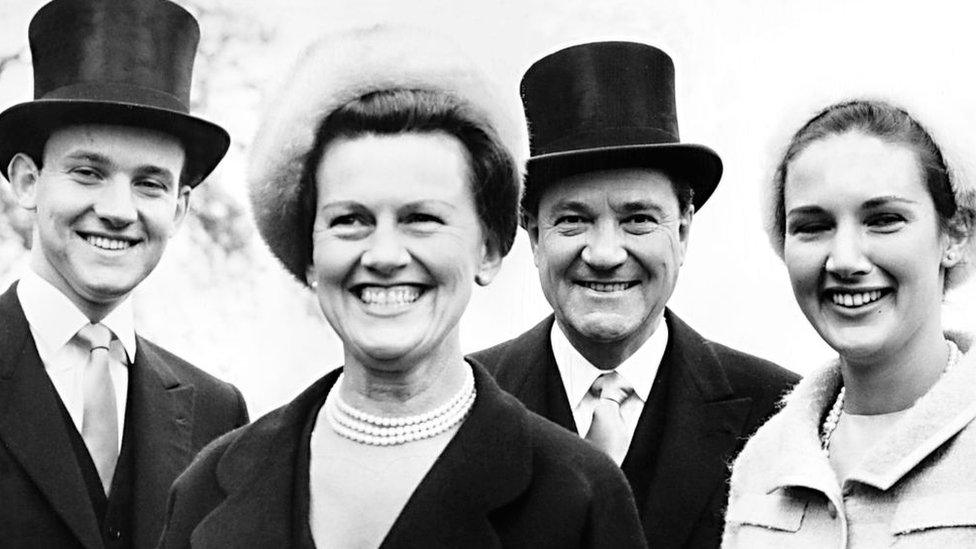'Mum's kidnap and murder felt like a thousand deaths'
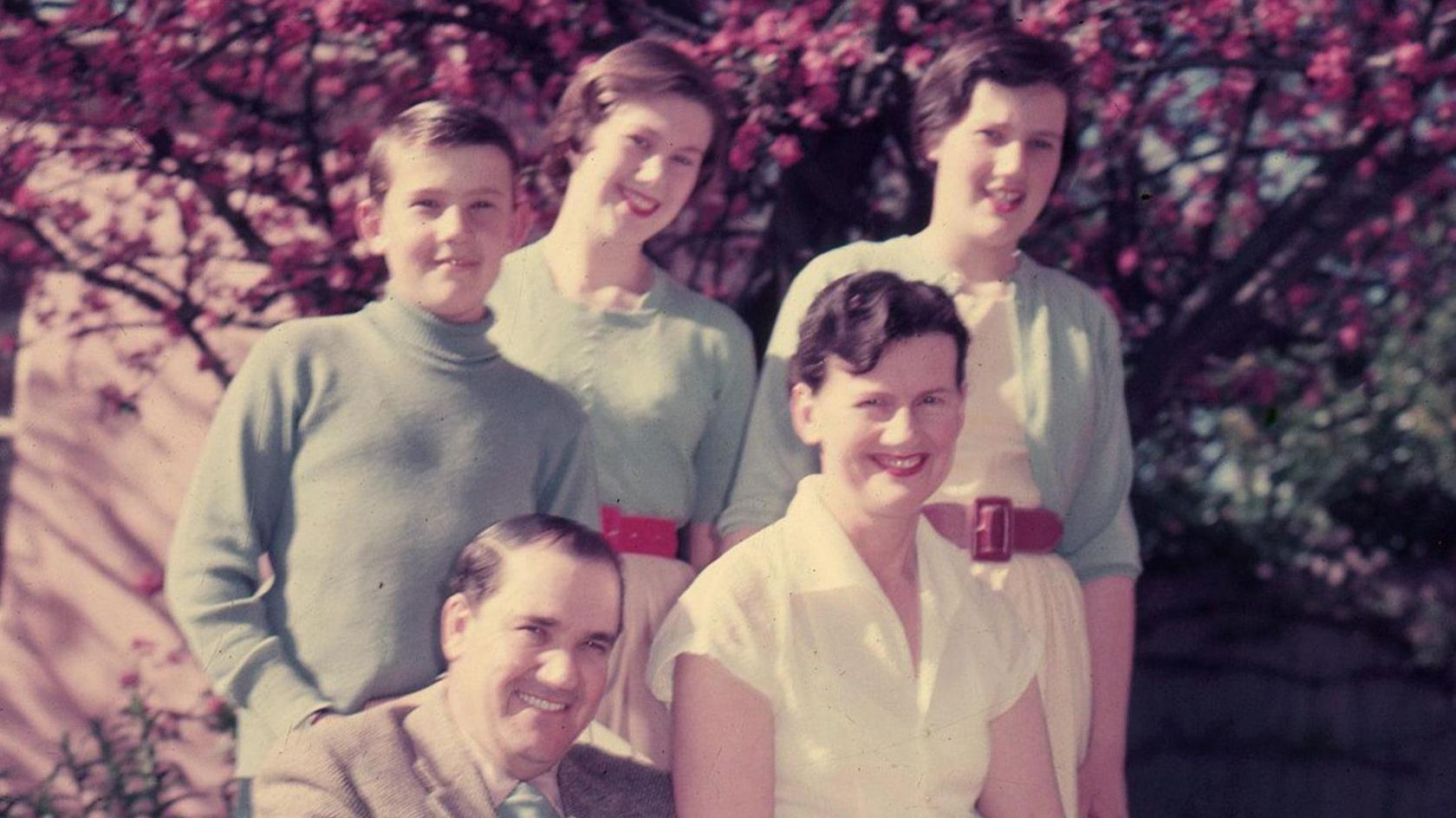
Siblings Ian, Dianne and Jennifer McKay have spoken to the BBC about the kidnap and murder of their mother Muriel
- Published
The family of a woman who was kidnapped and murdered but whose body has never been found said they endured the torture of "a thousand deaths" after her disappearance.
Muriel McKay was taken from her Wimbledon home in 1969 after she was mistaken for the then-wife of Rupert Murdoch, and held to ransom for £1m at Rooks Farm in Hertfordshire.
Speaking ahead of a fresh dig starting this week to try to find Mrs McKay's remains at the farm, her children told of the "torture" they endured after Muriel went missing and how their telephone rang endlessly with requests from journalists, well-wishers and crank calls.
Arthur Hosein, who owned Rooks Farm, and his younger brother Nizamodeen Hosein, were subsequently jailed for life for Muriel's kidnap and murder.
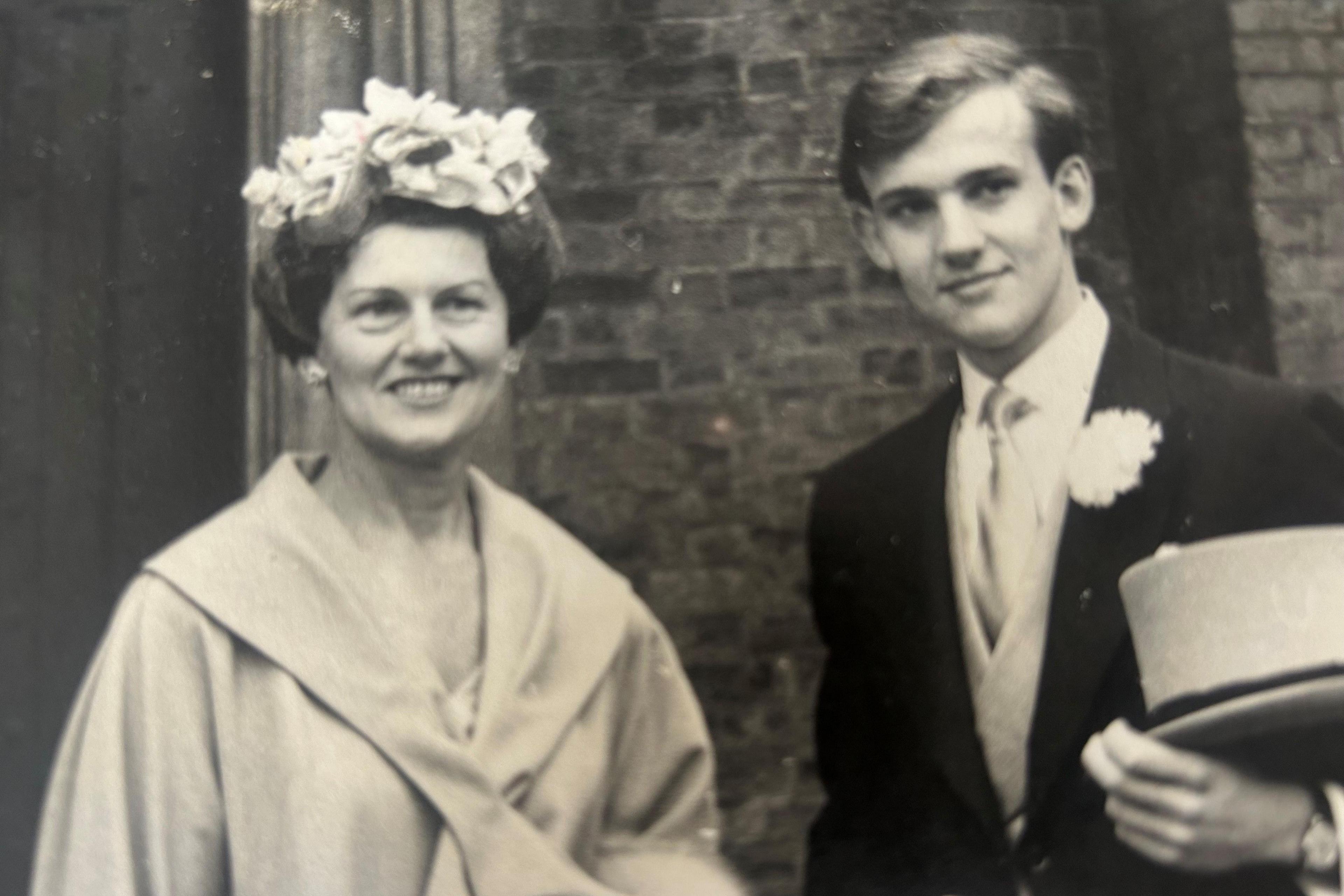
Ian McKay (right) said every phone call was answered after the disappearance of his mother Muriel (left)
Speaking to Jane MacSorley and Simon Farquhar for BBC Radio 4's new podcast Intrigue: Worse Than Murder, Muriel's son Ian McKay described how he was living in Australia and working with an artist on a book project when he learned of his mother's disappearance on a "little transistor radio".
Describing his arrival at the family home, where he joined his father Alick and sisters Dianne and Jennifer, Mr McKay said: "I do remember quite distinctly going into the house and feeling my mother's presence.
"I cannot explain that."
Mr McKay told how the family received call after call from various people including journalists, strangers and crank callers.
He said every call was answered, and added: "We were desperate.
"We had all sorts of cranks ringing up and saying: 'I know where she is or whatever'."
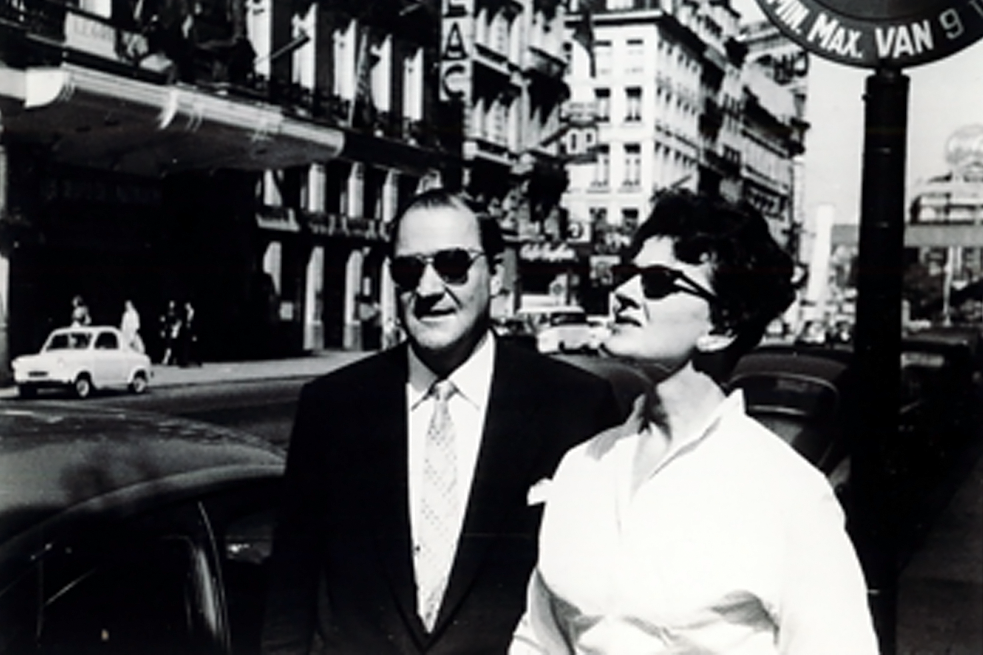
Muriel was married to Alick McKay, who was deputy to Rupert Murdoch
Many of the crank callers asked for money.
"It's beyond comprehension," he said. "You really find it hard to believe that people could behave in such an appalling way.
"We were absolutely dying a thousand deaths every day because we were hanging on every telephone call.
"This was the most incredible and torturous experience you can imagine - this just didn't happen over a few days. This went on for weeks."
The Hoseins were arrested on7 February 1970 and initially held at Kingston police station because of the press pack gathered outside the station in Wimbledon.

Intrigue: Worse than Murder
In the winter of 1969, kidnappers targeting Rupert Murdoch’s wife abducted Muriel McKay by mistake. She was never seen again. Jane MacSorley and Simon Farquhar investigate this shocking crime which baffled police and remains unresolved.
The first episode of Radio 4’s Intrigue: Worse Than Murder, is available now on BBC Sounds.

Mr McKay told how, shortly after the arrests, the lead officer in the case, Det Ch Supt Bill Smith, and Det Sgt John Minors, took him into the dining room of the family's home.
"They said, 'look, would you like to come down to the police station... we'll let you go in the cells - you can do whatever you like to them and no one will ever know'.
"I was quite taken aback," said Mr McKay. "As far as I was concerned, it was not even a consideration."
To this day, Mr McKay remains unsure whether the offer was genuine or a mixture of "bravado", frustration - that the brothers were not answering their questions - and a sense of "loyalty" to the family.
"I just think they felt this need to be able to prove to us that they had done everything possible," he said.
"And I think they [the police] just saw our hurt."
What happened to Muriel McKay?
- Published18 July 2024
Muriel McKay killer 'willing' to show where body is
- Published9 March 2024
Police pledge 'next steps' in 1969 hidden body case
- Published8 February 2024
Mr McKay told how he only kept the last two letters of about 120 sent to him by his mother.
The rest, he said, he had incinerated because he was worried about intrusion into his private life should they fall into the wrong hands.
"Whilst there was nothing secret in there," he said. "It was just something terribly personal."
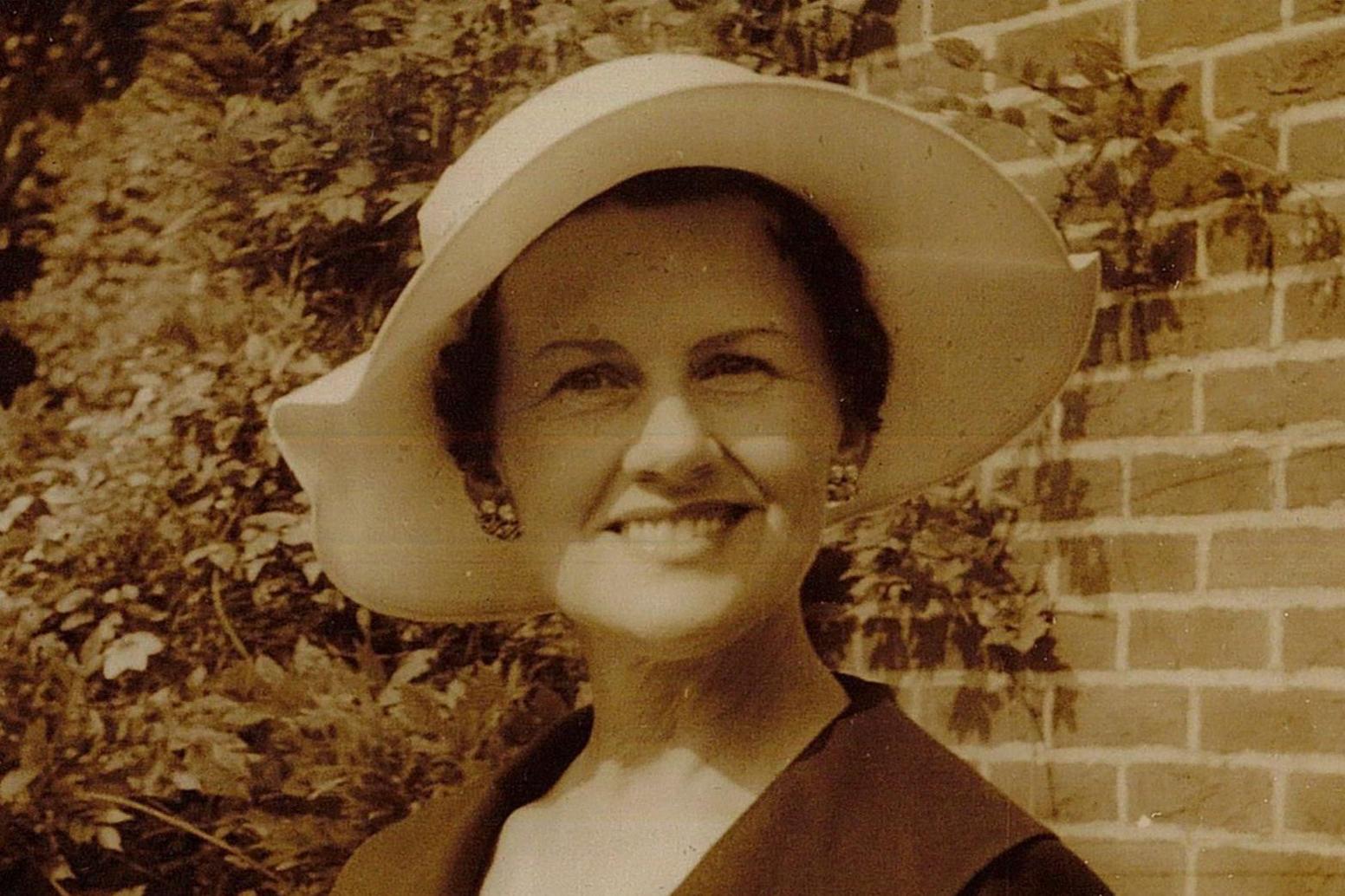
Dianne McKay said the family had never really talked with each other about Muriel's disappearance
Might the Hoseins have been caught sooner?
The McKays' eldest child, Jennifer, thought a potentially vital piece of evidence she claimed to have found, shortly after the disappearance, was ignored.
She described arriving in London from their Sussex home the day after Muriel went missing.
Her father, she said, was "crazy" with worry and "didn’t know what to do with himself".
The family had no idea what had happened to Muriel.
“It may be the IRA, it may be the mafia, we don’t know what it is," she said.
"It was really extraordinary because it was seething with police officers and reporters in the house full stop, they were lined up along the curb outside for, well, weeks."
The home had been combed for evidence by the police, but Jennifer said she wanted to look around for herself.
"I wanted to walk around the house quietly," she said. "I'm walking all rooms just to sort of see if I could feel anything different."
Beneath a table in a small room close to the kitchen she spotted a photograph on the floor, she said. The image was of a group of men with a campervan.
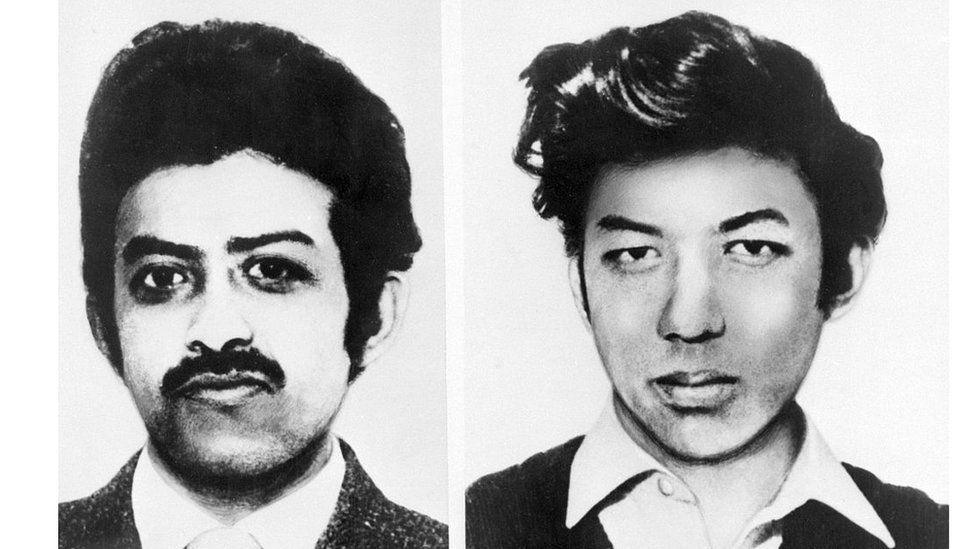
Brothers Arthur and Nizamodeen Hosein were convicted of Ms McKay's kidnap and murder
“It’s something that isn’t where it should be," she said.
She said she mentioned the discovery to Det Sgt Minors.
“And so I went in and said I'd just like to show you something I found," she said, adding she felt ignored and treated like a "silly daughter".
"He looked at it. And so he said 'I'll talk to you about that later' and put it in his pocket and I never saw it again.
"He never could admit to having had it and that was the end of that."
Asked whether she believed some of those in the image were the Hosein brothers, Jennifer said: “Oh yes I do. Definitely. I think it was Nizamodeen and two others."
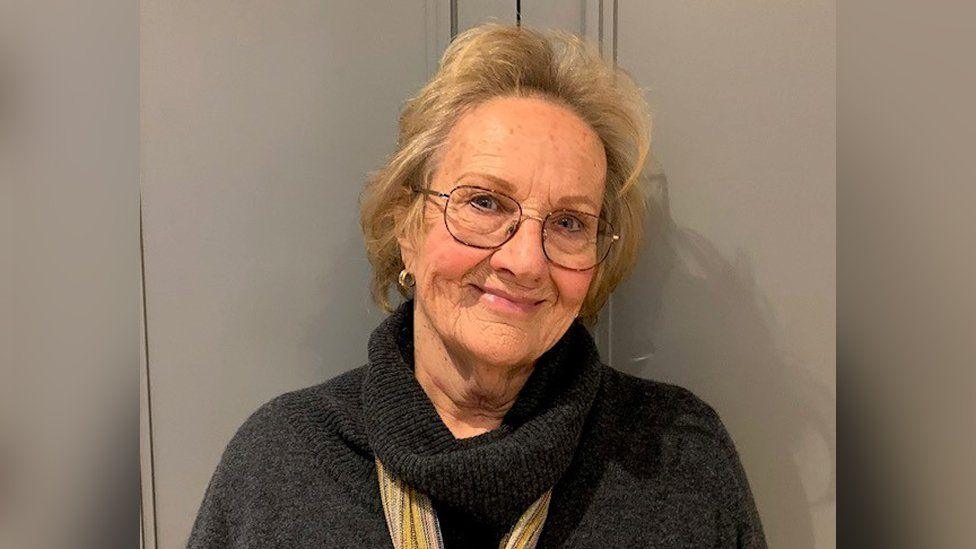
Dianne McKay accepts Hosein might not be telling the truth but questions what motive he would have now for not being honest
Arthur died after he was moved from prison to a high security hospital. Nizamodeen was deported to his native Trinidad after serving his sentence.
In January, Dianne and her son, Mark Randolph Dyer, flew to Trinidad to meet Nizamodeen - who told them where he had buried her body.
The Met Police's decision to carry out another search at the farm site came after detectives flew to Trinidad to speak directly to Hosein in March.
Dianne said the family had never really talked with each other about Muriel's disappearance.
"None of us ever offloaded to anybody about the experience we'd had, which was pretty unique and absolutely overwhelming and horrific," she said.
"It really screwed me up - it took me years to get back on track."
She accepted Nizamodeen might not be telling the truth about the location of her mother's body. However, she also questioned what reason, having served 20 years in prison, he might have to lie about the whereabouts of her remains.
As for Mr McKay, he said he did not know exactly what finding Muriel's body might mean for the family, but he supported the effort.
He said he felt the family had "done absolutely everything we could possibly do".
"I think that we've honoured her the best that we could possibly do," he said.
Follow Beds, Herts and Bucks news on Facebook, external, Instagram, external and X, external. Got a story? Email eastofenglandnews@bbc.co.uk, external or WhatsApp us on 0800 169 1830
Related topics
Related Internet Links
- Published21 June 2024
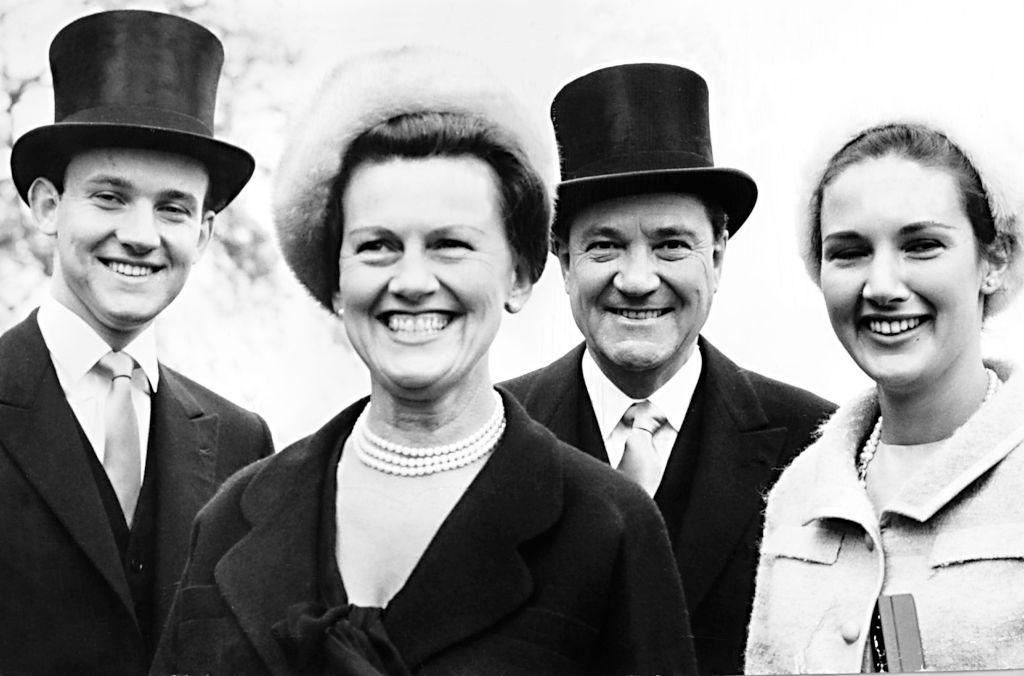
- Published18 July 2024
